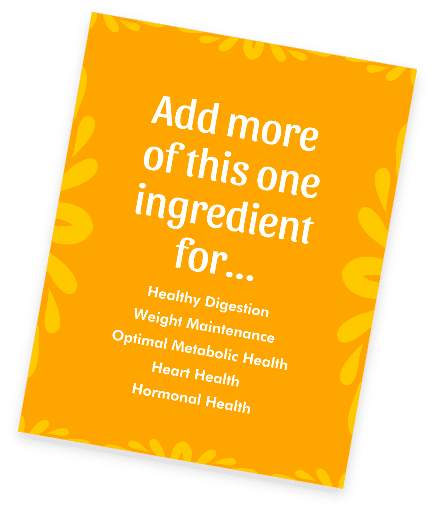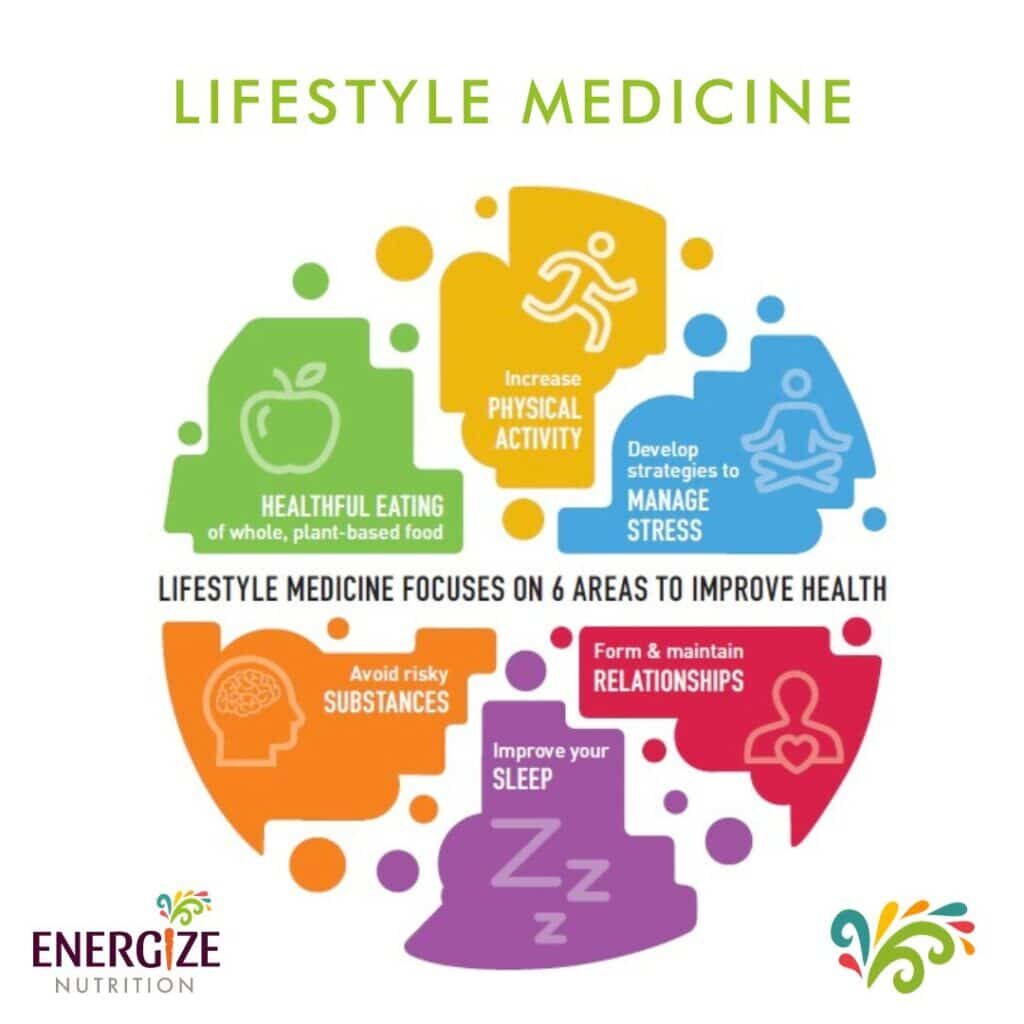How sleep impacts what and how much you eat
Sleep! Are you getting enough? Sleep is the ultimate rest and rejuvenation time we each have the chance to experience every day – but most people don’t get enough, either quantity or quality. For many, falling or staying asleep is difficult.
Many of us short-change our sleep because we need the early morning or late night hours for uninterrupted work, for time to connect with our partner, or for some “me-time”.
Culturally, sleep is thought to be a waste of time. Does “You can sleep when you are dead” sound familiar? Many proudly declare their ability to function on a small amount of sleep, which is conflated with strength or productivity, and is worn as a badge of honor.
But newer insights show that sleep isn’t a luxury. It is a necessity, having a critical impact on our health, both physically and mentally. Keep reading below to learn more about sleep and how it impacts your health, including what and how much you eat.
How much sleep do we need?
It is estimated that one third of our life is spent sleeping, with our sleep needs changing throughout the lifespan. Have a look at the recommendations from the Sleep Foundation.
Image source: National Sleep Foundation
In general, adults need 7-9 hours of sleep/day, although there is a range of subjective needs among people (National Sleep Foundation’s updated sleep duration recommendations: final report)
Since 1970, there has been an increase in short sleep duration for all age categories. One in three adults report regularly not getting enough. Insufficient sleep impairs our functional performance, often without us even realizing it.
Sleep habits affect both your body & your health
Sleep is a modifiable risk factor that can improve your health. Insufficient amounts is associated with a higher risk for diabetes, cardiovascular disease, mental health concerns, injuries and poor productivity.
During sleep, there is reduced metabolic demand on our body. However, our body is quite active! DNA is being remodeled and repaired. Memory is being encoded and stored. Our hormones are being re-regulated. Our emotions are being re-balanced. In short, our body is restoring and repairing itself.
Emerging research on sleep & food intake
Sleep less, eat more
Getting less sleep is associated with increased food intake, and as a result, having a higher total energy intake throughout the day. We consume more calories. Approximate 300-400 calories more.
Results from large bodies of research on sleep restriction interventions conducted in both lean adults and those with overweight or obesity, have found increases in energy intake by 253 kcal/day and 385 kcal/day (respectively) following sleep restriction, as compared with those getting the recommended duration. (The role of insufficient sleep and circadian misalignment in obesity – PMC). This is important, because if you regularly do not get enough sleep, you may be more apt to consistently have a higher total energy intake in the day, which may predispose you to unexpected changes in your weight.
Sleep restriction is associated with increased food intake (as measured by calorie intake, 296 – 385 kcal).
This increase in total energy intake is not totally explained by an increased energy expenditure or resting metabolic rate. (Short sleep duration increases energy intakes but does not change energy expenditure in normal-weight individuals).
Studies have also found that when sleep duration was increased, it resulted in a reduction of food energy intake (Effect of Sleep Extension on Objectively Assessed Energy Intake Among Adults With Overweight in Real-life Settings: A Randomized Clinical Trial).
How does less sleep result in increased food intake?
There are two broad mechanisms thought to drive an increase in food intake.
Image source: Chaput & St-Onge. 2014. (Click here to see an enlarged version of this image: Increased Food Intake by Insufficient Sleep in Humans: Are We Jumping the Gun on the Hormonal Explanation?)
1) Homeostatic drive to eat
Too little sleep impacts your hormones, resulting in a greater “homeostatic drive” to eat
Poor sleep is associated with:
- Higher levels of the hormone ghrelin, which induces hunger. When your tummy growls, think ghrelin.
- Lower levels of leptin. Leptin tells us we have eaten enough. Less leptin results in us needing more food to feel satiated.
- Higher cortisol levels and insulin resistance. When our bodies need more insulin to move the sugar from our blood to our cells, it creates an anabolic environment where the body wants to store energy.
The results of these hormonal changes is that you are predicted to be hungrier during the day, and as shown in the data above, results in people eating more food in the day. In the context of insufficient sleep, this could result in unexpected changes in our weight.
2) Non-homeostatic drive to eat
Too little sleep impacts your brain biology, resulting in a greater “non-homeostatic drive” to eat, also called “hedonic drive”.
We all eat for reasons beyond physical hunger (I’m looking at you bowl of popcorn while I am watching my latest Netflix series). The more time we spend awake, the more likely we have easy access to highly “palatable” foods, and the more sensitive we are to the rewarding aspects of food.
Poor sleep enhances our vulnerability to overeat in environments that make it easy to consume highly palatable food.
Insufficient sleep increases snacking, the number of meals eaten per day and the preference for highly palatable food items (I’m looking at you chocolate or candy stash by the couch saved for when kids or partners are gone).
So I just need more willpower?
If you think you can use will-power to white knuckle your way through these late night cravings, newer research suggests your brain biology will challenge you and make this difficult. Insufficient sleep activates certain regions of our brain associated with pleasure-seeking, and enhances our sensitivity to food-based reward. (Sleep restriction increases the neuronal response to unhealthy food in normal-weight individuals).
Restricted sleep makes us more responsive to food
Restricted sleep induces a state of greater responsiveness to food stimuli and heightened awareness of the rewarding properties of food.
Highly palatable foods activate the areas of the brain associated with reward and pleasure. Restricting sleep can increase the saliency of highly palatable foods – it makes them more noticeable, which further promotes our cravings or hedonic hunger. During habitual sleep, up-regulation of the cognitive control centers could significantly improved restraint behaviour to these highly palatable foods (Sleep restriction leads to increased activation of brain regions sensitive to food stimuli).
Other research has found that sleepiness correlated with reduced activation of brain regions that help us with inhibitory controls in response to foods (the ventromedial prefrontal cortex) when viewing images of high vs low calorie foods (Daytime sleepiness affects prefrontal regulation of food intake). As one of my clients summarized, the part of the brain that helps us with impulse control doesn’t work well when we are sleepy.
Emerging research is shedding light on the brain circuitry and central nervous system regions involved in evoking the pleasure or “hedonic response” to food stimuli that goes along with sleep loss. (Increased Food Intake by Insufficient Sleep in Humans: Are We Jumping the Gun on the Hormonal Explanation? – PMC).
Tip: Be mindful of how many “joy foods” you keep in your home. The more variety of “highly palatable” foods you have in your home, the more you are going to eat them, especially if you are tired.
Too little sleep is associated with changes in body weight
- Too little sleep gives us less energy to be physically active (this is a separate blog post).
- Staying up too late is associated with late night snacking as described above.
- Insufficient sleep is associated with choosing food items that may be less nutritious and harder to manage portion sizes.
How to feel more in control of your food intake
A better day with food, movement and mindset starts with a good night’s sleep. If you are not getting enough, you may benefit from examining your sleep routine. If you wake up not feeling rested, an indicator of poor quality of sleep, you may benefit from a sleep assessment.
Do not underestimate the power of sleep as a key strategy to improve your health. Sleep is one of the 6 components of lifestyle medicine (the others are physical activity, dietary pattern, substance use, stress & relationships). These are factors that we can work on in our lifestyle that can have a big impact on our body’s health and well-being.
13 tips to help you catch your midlife Zzzzzzz’s
Here are 13 sleep tips to help you catch up on your midlife Zzzzzzzz’s.
Seek the sunlight!
Natural light during the day helps regulate your internal sleep-wake clock. Time to shine, sunbeam! ☀️
Swap your sip!
Limit caffeine-containing beverages (coffee, tea, energy drinks, colas) after noon. Beware of sneaky, hidden caffeine! It’s like a ninja that messes with your sleep. Sayonara, afternoon latte! ☕🥋
Limit alcohol which leads to poor quality sleep (While it may make you feel sleepy, it actually steals your REM sleep).
Drink dreamy hydration
Stay hydrated during the day, but ease off before bedtime. No one wants midnight bathroom runs, right? Sip smart, sleep soundly! 💧🌙
Delight in dinner!
Enjoy a satisfying dinner a few hours before bed. I mean a meal that leaves you satisfied, not stuffed. 🍽️🥗 This gap between your last eating occasion and time of anticipated sleep helps to limit heartburn and help you fall and stay asleep.
Snack smartly
If hunger strikes before bed, go for a light, protein-rich snack, like a Greek yogurt with fruit. Sweet dreams, snacktime! 🥜🌙
Enjoy delicious movement
Delicious movement – aka exercise or physical activity – is the kind of movement that makes your body feel good and is your sleep superhero. 💃🕺🧘♂️
Take a tech timeout
Unplug from screens an hour before bed. The blue light they emit interferes with your body’s ability to secrete melatonin, a hormone that promotes sleep. Goodnight, digital invaders! 📱👾
Pillow paradise
Your bed should be a cloud of comfort. Invest in pillows and bedding that make you say, “Ahh, I’m on a marshmallow!” 🛏️🌈
Rise and shine with routine
Set a bedtime and stick to it, even on weekends. Your body loves predictability as much as you love your favorite playlist. Aim to get to bed and wake up at a similar same time each day. ⏰
Zen your sleep space
Transform your sleep space into a serene sanctuary. Think cool colors, calming scents, and cozy vibes. Punt out the TV and screens. Turn the lights down low. Darkness triggers our body to release melatonin, a hormone that helps us sleep. Transform your bedroom into the ultimate chill zone! 🌿🛌
Magical meditation
Mindfulness meditation before bed can quiet those busy thoughts. Time to let go and float into dreamland. Om… zzz… ✨🧘♀️
Stress less, dream more
Does your task hamster start to run while you should be sleeping? Jot your thoughts down in a dream diary to tuck them away for the night and keep those stress hamster away.
Breathe easy, sleep breezy
Try some deep-breathing exercises, like you’re blowing out birthday candles. It helps to stimulate a relaxation response, acting like a gentle lullaby for your racing thoughts.
Sweet dreams and goodnight giggles to you!
References consulted in the writing of this blog post:
American College of Lifestyle Medicine. Foundations of Lifestyle Medicine. Board Review Manual. 3rd Ed. © 2021. Section 8: Sleep Health Science and Interventions. Pp267 – 294.
Dr Marie Pierre St Onge, Dr Christopher Kline and Dr Jean-Phiippe Chaput. “Sleep more weigh less: studies of the impact of sleep on dietary intake, physical activity, behaviour and response to weight loss interventions”. Conference Presentation, San Diego, California. November, 2022.
Sleep Foundation. https://www.sleepfoundation.org/ Accessed August 28, 2023.
The role of insufficient sleep and circadian misalignment in obesity – PMC
Sleep restriction increases the neuronal response to unhealthy food in normal-weight individuals
Sleep restriction leads to increased activation of brain regions sensitive to food stimuli
Daytime sleepiness affects prefrontal regulation of food intake
Tagged in: Calgary Dietitian, Calgary Nutritionist, cravings, dietitian, late night snacking, lifestyle medicine, midlife, midlife nutrition, midlife wellness, nutrition, nutritionist, Over 40, sleep, sleep health
2 Comments
Leave a Comment


Welcome to the Energize Nutrition blog, where we share evidence-based nutrition content, designed to empower people’s midlife. Take a look around to find information on feeling your best.
If you need more individualized support, reach out to set up a free discovery call with Kristyn Hall.

Battling chronic hunger, poor energy, or inflammation? Discover what this powerful ingredient is and why it might be the solution!








Great article!!😃
Thank you for your feedback! I am passionate about helping people expand their perspective on health beyond food and movement.